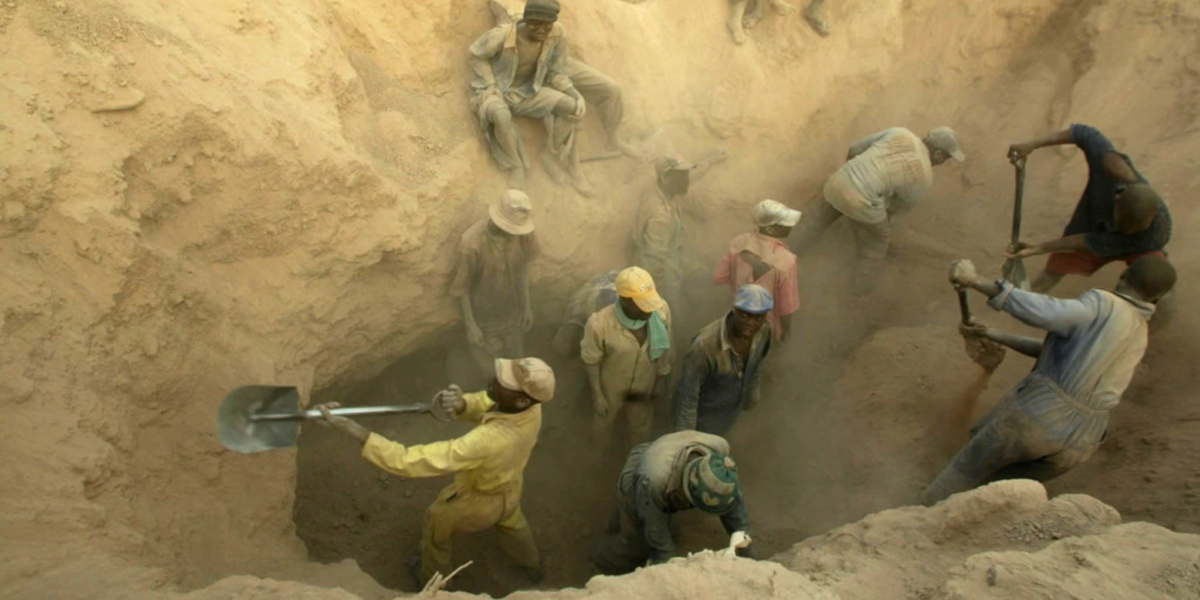This testimony has been published anonymously. The testimony contains a graphic and honest description of sexual violence and abuse and is not recommended reading for minors or those who may feel triggered.
I am a woman involved with the Catholic Commission for Justice and Peace in Zimbabwe.
The history of diamond mining can only be described as blood-spattered and diamond mining in Zimbabwe is no exception. De Beers held exploration rights for the Marange diamond fields until this expired in 2006 and the government declared the diamond fields open to anyone. The diamond rush begun.
In late 2006, the government tried to ‘clean up’ the diamond rush by enforcing the rights of companies that had mining licenses, and expelling those who did not. What followed was two years of killings, sexual abuse, exploitation and human rights abuses in a shocking display of a state’s prosecution of its own people. Eventually the Zimbabwe defense forces was deployed and as the Zimbabwe Independent reported, all hell broke loose after that. There were overwhelming reports from communities of sexual abuse.
One particular form of sexual abuse occurred regularly and was never publicly reported. A policy was put in place that restricted entry to the Marange community to residents, verified through Identity Cards. The army were deployed at various entry points and would search anyone arriving. Passengers would be asked to disembark from their vehicles when they got to the check points for searching. Women and men were separated. Female military officers were assigned to search for diamonds even inside women’s private parts. Women were asked to remove their underwear, lie down and the female military officers searched inside the women’s vaginas using bare fingers to look for diamonds.
The period of the clean up the diamond rush was a moment of total madness. There was no space for dialogue, nor sanity. I decided to drive to a Catholic Parish in Marange, and because I did not have the appropriate ID, I disguised myself as a nun. It was on this occasion that I saw what was happening to women. For me to build a case that could be brought to court, I needed witnesses; I needed women who could stand up and share their experience. But, every time I got witnesses, they would withdraw at some point. In our tradition it is taboo and an abomination for a woman to share such experiences for fear of being stigmatized and judged by society. In one instance, I tried once passing through without being disguised as a nun and used public transport anticipating a search, I was not allowed to pass through but did not go through a search.
In order to build a case, I had to build the trust and confidence of the women to articulate issues in a courtroom. Though the Commission tried to draw attention to this type of violation, women of Marange never shared this story in a public space. Finally, we decided to design a strategy to help them with psycho-social support. I was leading this program yet wounded and bleeding. How could a wounded healer heal the wounded? I went through a period of depression. Though I tried to share what I was going through with like-minded individuals, even for me it was difficult to open up within family circles and the church itself.
This emotional and psychological trauma of seeing an injustice being perpetrated and failing to address it has stayed with me for a long time, and I continue to struggle with it. It was the fault of structures, policies, and political will and it was also about a failure of the weak to raise their voice for a just system and demand their protection. I remember at some point receiving an audio threatening me with gang rape, and I would hear these voices even years after the clean-up. I was haunted by the fear of being brutalized and dehumanized by the same system that should be protecting me.
Over the past years, I have designed programs around security sector transformation in an effort to re-establish sanity and trust between the civilian and the security sector. And yet the trauma of knowing what happened and was never talked about continues to haunt me. Years after the regularization of mining in Marange, the same women continue to suffer the negative impact of mining: unsuitable working conditions, physical, emotional and psychological violence by men who work in mines and abuse drugs and alcohol; early marriage and high rate of school drop out by the girl child. And so the battle continues with some efforts to publicize the plight of women and to persuade the government and private companies to involve communities in planning and implementation of mining activities. We continue as human rights defenders to offer psycho-social support to counter negative effects on women: domestic violence, loss of human life, decaying moral values, immorality, early marriages, substance abuse and prostitution. We advocate that the security sector should use better strategies of enforcing the law for the protection of women.

